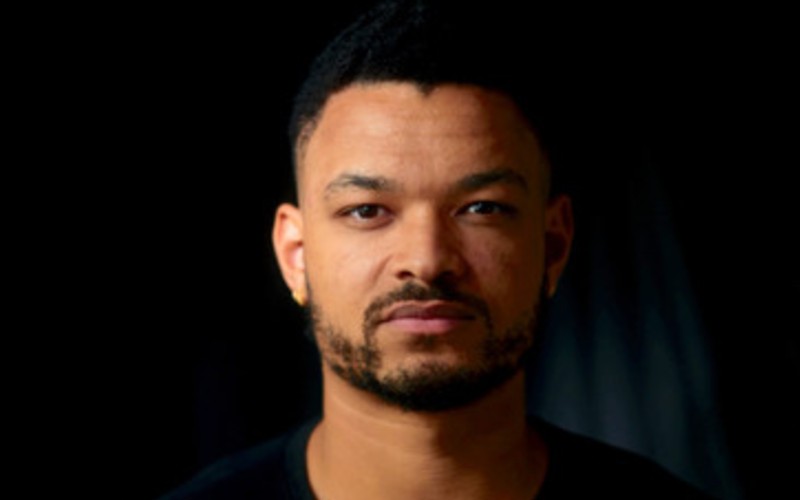Dragons’ Den star Steven Bartlett has hit back at a BBC investigation that claims guests on his Diary of a CEO podcast were making an average of 14 harmful health claims on each episode.
It follows analysis by BBC World Service of a number of health-related podcast episodes.
The podcast initially focused on entrepreneurship and business when it launched in 2017 but has concentrated more on health-related issues since 2020.
It’s produced by his podcast production company Flight Studio.
boohoo offers Frasers board seat after it takes aim at Kamani
BBC World Service looked at the 23 health-related episodes released between April and November this year, fact checking with four medical experts – cancer research professor David Grimes, public confidence in healthcare professor Heidi Larson, NHS diabetes adviser Dr Partha Kar and surgeon Dr Liz O’Riordan.
They concluded that some guests billed as health experts shared accurate information, but most were spreading misleading claims.
These included:
• Anti-vaccine conspiracies, stating that Covid was an engineered weapon
• Poly-cystic ovarian syndrome, autism and other disorders can be reversed with diet
• Evidence-based medication is ‘toxic’ for patients, downplaying the success of proven treatments
Bartlett hasn’t commented on allegations across his multiple social media platforms but a spokesperson for his company Flight Studio has hit back in a strongly-worded statement.
“The Diary Of A CEO (DOAC), is an open-minded, long-form conversation with world leaders, global experts, CEOs, athletes, authors, actors and other individuals identified for their distinguished and eminent career and/or consequential life experience,” it said.
“Each guest episode is thoroughly researched prior to commission. DOAC offers guests freedom of expression and believes that progress, growth and learning comes from hearing a range of voices, not just those Steven and the DOAC team necessarily agree with.
“The BBC claims to have reviewed 15 specific episodes of nearly 400 published to date. For any reporting of DOAC to focus on less than 4 per cent of episodes with an extremely limited proportion of guests – some of whom have featured on the BBC – to create a broader, and in our opinion, partial narrative is disappointing, misleading and frankly, disingenuous.”
More layoffs as BenevolentAI plans to delist & return to ‘original mission’
However the court of public opinion has been split on the latest controversy facing Bartlett.
James Barker, owner of GTM Hive, wrote on LinkedIn: “What the frack has happened to Steven Bartlett’s content? He was an outstanding interviewer tackling some genuinely interesting things.
“His most recent guests were the orgasm queen, a person talking about how dangerous scented candles are, and a guy saying how investing index tracking ETFs is silly and we should go all in on crypto.
“This man used to discuss big things with smart people. What happened?”
Lucy Jung: From brain tumour to fixing ‘capital city of social inequality’
Cornel Dixon, head of growth at Plumery, responded: “Breadth means more views and more clicks. And it ends up feeling thin and stretched, like butter scraped over too much bread.”
Josh Wheeler, founder of specialist broadcast PR consultancy Be Broadcast, said people need to exercise more caution around podcasts, YouTubers and influencers.
“While Bartlett and his guests aim to share unique perspectives on things like healthcare – and that’s commendable – what’s missing is the accountability and journalistic rigour to challenge or scrutinise those views,” he wrote on LinkedIn.
“This creates the risk of podcasts becoming a go-to platform for navigating difficult situations without proper oversight.”
James Crawford, managing director of PR Agency One, said: “Podcasters like Joe Rogan and Steven Bartlett claim to be unbiased, yet their platforms often amplify controversial and harmful views with little to no scrutiny. Bartlett’s recent episodes, as exposed by the BBC, have allowed harmful health misinformation to flourish unchecked. Similarly, Rogan’s interviews with political figures have given hours of airtime to extreme perspectives that a journalist would be duty-bound to challenge.”
However Steph Bridgeman, founder of Experienced Media Analysts, had a different view.
“I strongly disagree with this point of view and feel that podcasts have allowed space for truths to come to light which otherwise would not have been given airtime,” she said.
“But it’s clear from this morning’s smear piece on the BBC against Bartlett that his content has rattled someone up the food chain so they’ll try to take him down.
“Uncomfortable and differing points of view should not be muddled with misinformation.
“I saw very little challenge from our mainstream media houses during recent years when harms were being done to our society, where does this fictional ‘challenging’ mainstream journalist work? I’ve not seen them in a while.”
Readers have their say on Steven Bartlett: Genius or bluffer?
Writing on X, JP Stanley said: “Steven isn’t spreading misinformation. He just lets guests speak on his show.”
Earlier this year two adverts for brands Huel and Zoe featuring Bartlett were banned after Advertising Standards Authority said they were misleading.


